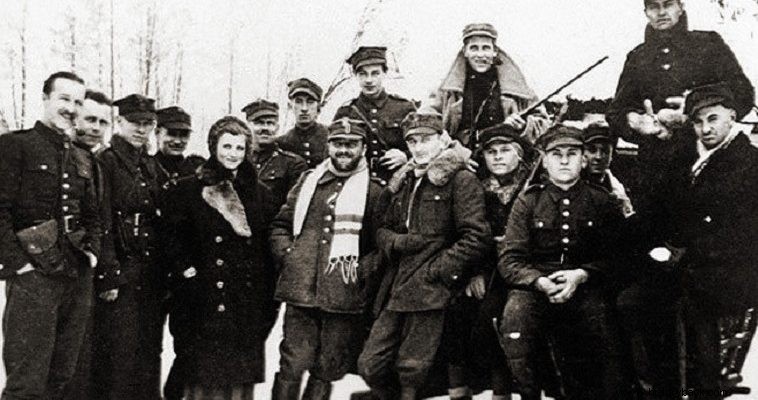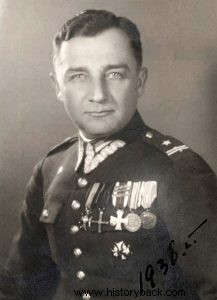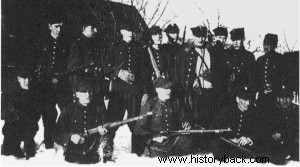
Captain Henryk Dobrzanski was born in 1897 in the Austrian-occupied part of Polish Poland. He came from a noble family and had a developed patriotic feeling. From the age of 15 he joined a patriotic Polish organization that sought the independence of their country which was then under the triple occupation of Russians, Germans and Austrians.
When World War I broke out, at the age of 17, he joined the Polish Legion formed by the Austrians. The Poles fought bravely against their main enemies, the Russians, having been promised independence. Dobrzanski joined the 2nd Ulan (lancers) Regiment and took part in many battles. When in 1918 Poland was recognized as an independent state, he immediately joined the newly formed Polish army.
He took part in the war against the Ukrainians and then against the Bolsheviks. For his courage he was awarded the highest Polish decoration, the Medal of Military Merit and four times the Cross of Military Merit. After the end of the war he remained in the army. An excellent equestrian, he represented his country at the 1928 Olympic Games and came fourth. He won a total of 22 gold medals in equestrian.
World War II
In 1939 Dobrzanski was appointed deputy commander of the 110th Reserve Cavalry Regiment (SI). The regiment was a conscripted unit, but due to the rapid German advance it soon found itself in combat and indeed short of men and materiel. The regiment fought against both the Germans and the Soviet invaders. He particularly distinguished himself in the battle of Grodno against the Red Army. After a fierce three-day battle the city surrendered. Although the 110th SI was ordered to retreat to Lithuania, it disobeyed the order and moved toward Warsaw.
At some point he was surrounded by the Soviets but after a hard fight he managed to break the cordon and escape. After that the commander of the regiment, Lt. Col. Dabrowski decided to disband the unit. However a section of 180 men said they wished to continue the fight. Dabrowski put himself in charge of them and moved towards Warsaw. The Polish capital, however, surrendered on September 27 before the regiment arrived there. Few options were left to the irreconcilable Poles. The first was to give up the fight, the second was to try to escape through Romania or Hungary and the third was to continue the war within Polish territory.
The lieutenant colonel decided to attempt an escape at the head of about 50 men. On October 1st the division crossed the Vistula. There he clashed with the Germans. After this a group under Major General Dobrzanski decided to remain in the Kielce area and continue fighting in anticipation of the French and British offensive against the Germans, which was expected to take place in the spring of 1940. A few days later the last remaining Polish units capitulated. (October 6, battle of Kok). Dobrzhanski and the 11 men who followed him were supported by the locals some of whom joined his division.
In November 1939 he became associated with the Polish resistance and met with General Tokarczewski and received instructions. On December 24, however, he was ordered to disband his department, but he refused. But he allowed those who wanted to leave. So he was left with 30 men. But soon with the enlistment of local and other escaped soldiers, his division, by March 1940, had reached the number of 300 men and one woman.
Thus strengthened, he began operations against the Germans, attacking the enemy wherever he found them. The Germans reacted in the usual way. In the first phase they burned the villages that supported Dobrzhanski and his men and executed more than 700 civilians. At the same time, they silently pursued the Polish fighters. On April 30 Dobrzhanski and a small section under his command fell into a German ambush and fell fighting to the end. His unit continued to fight until June 25, 1940 when it was disbanded as their last hope, France, was bleeding.
It is worth noting that Lt. Col. Dabrowski was eventually captured by the Soviets and, after suffering horrendous torture, was murdered by them in Minsk at the same time that thousands of Polish officers were being murdered in Katyn. Dobrzanski's life was made into a movie in 1973, when Poland was under communist rule. The heroic Pole is the first partisan of Europe, a title that was wrongly attributed to Manolis Glezos, without, of course, negating anything from his heroic deed.

Lieutenant General Henrik Dobrzanski.

